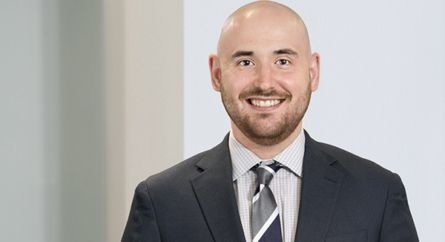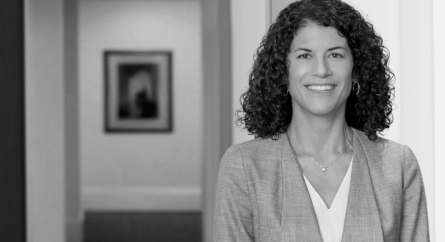Ongoing Battle Between Students and Universities Over Pandemic-era Campus Closures
This post has been updated as of March 18, 2024, to reflect the First Circuit’s March 13, 2024, decision in Dutra v. Trustees of Boston University (1st Cir. 2024) that will have an outsized impact on colleges and universities in Massachusetts facing COVID-19 tuition and fee lawsuits.
Since the COVID-19 pandemic began, hundreds of lawsuits (many styled as class actions) have been filed by college and university students seeking tuition and fee refunds due to campus closures during the spring 2020 semester. While most institutions will feel justified in their decisions to close campus as a means to promote the health and well-being of their campus communities, the success of these lawsuits has varied widely based on factors such as the differences in state common law or statutes, as well as the defendant institution’s appetite for protracted litigation.
Recently, in a federal court case out of New York, Ford v. Rensselaer Polytechnic Inst. (N.D. N.Y. Jan. 9, 2024), the parties reached a global settlement after a period of engaging in motion practice and extensive discovery. The student plaintiffs brought a consolidated class action against Rensselaer Polytechnic Institute (RPI) for alleged harms suffered due to RPI’s transition from on-campus to online education during the COVID-19 pandemic, under theories of contract and unjust enrichment. Ultimately, the court issued a final judgment approving a $6,500,000 settlement agreement, which encompassed provisions including, but not limited to, dismissal of the action with prejudice, releases of claims by both parties, and awards for attorneys’ fees and expenses. The final judgment also clarified that it did not constitute an admission of fault by RPI. Notably, this case exemplifies that where some institutions initially took an aggressive approach in defending these cases, they may come to view settlement as a more productive alternative to a drawn-out legal process. Settlements such as this may also reinforce thinking among plaintiffs that such cases may be viewed as a war of attrition to the extent their claims can survive the initial stages of litigation.
In another recent decision out of New York, Coccaro v. Barnard Coll. (S.D. N.Y. Jan. 18, 2024), a similar complaint has survived an initial attempt at dismissal. The plaintiff, a former student at Barnard College, filed a putative class action against Barnard College alleging breach of implied contract and unjust enrichment due to the closure of Barnard’s campus during the COVID-19 pandemic. The plaintiff was a student at Barnard during the spring 2020 semester and had paid tuition and fees for education and campus services. However, due to the pandemic, Barnard had shifted classes online and limited access to on-campus services and facilities. The plaintiff argued that Barnard’s promotional materials implied an expectation of in-person education and campus benefits. The college filed a motion for judgment on the pleadings, arguing that the plaintiff failed to state a claim—contending that she did not identify specific promises of in-person instruction and that the closure was justified due to the pandemic. However, the court denied Barnard’s motion, and found that the allegations in the complaint implied a mutual expectation of in-person education, and the college’s justification for closure did not negate its obligation to refund tuition and fees for unprovided services. The court also rejected Barnard’s argument that the plaintiff waived her right to a refund by accepting benefits from the contract, stating that the issue of waiver was a question of fact. Additionally, the court found that Barnard’s disclaimer and continued provision of online services did not warrant dismissal at this stage.
In Massachusetts, Governor Maura Healey’s Fiscal Year 2024 budget included a provision immunizing colleges and universities from civil liability for damages allegedly caused by the transition from in-person to online instruction, as well as other adjustments made during the spring 2020 academic term. This law is colloquially known as “Section 80” and referred to by the First Circuit by the moniker “Law 80.” Several criteria must be met for immunity to apply under Section 80, including that the institution’s actions were “reasonably related to protecting public health and safety interests…in compliance with federal, state or local guidance.” Most importantly for the colleges and universities facing claims, Section 80 has retroactive effect “to claims commenced on or after March 10, 2020” that were not yet decided before the law passed. This Massachusetts law is not unique, as other states, such as North Carolina and Florida, have passed similar laws limiting institutional liability.
At the time this blog post was first published, cases against Brandeis University and Boston University were racing towards the First Circuit to decide the validity of Section 80. Boston University got there first and on March 13, 2024, the First Circuit ruled in favor of Boston University. In Dutra v. Trustees of Boston Univ., No. 23-1385 (1st Cir. 2024), the First Circuit held that Section 80 does not violate the students’ due process rights by its retroactive application and the First Circuit affirmed the District Court’s grant of summary judgment in favor of Boston University.
The First Circuit applied a 3-part test to evaluate whether Section 80’s retroactive application was reasonable and consistent with the federal and state due process principles. The Court considered (1) the nature of the public interest behind the statute; (2) the rights affected by its retroactive application; and (3) the impact of the statute. The Court then balanced the competing interests.
The First Circuit found a sufficient public interest, explaining that Section 80 “serves reasonable and plausible public interests related to public health, safety, future compliance, and economic consequences beyond the control of the universities.” The First Circuit then found that even if the plaintiff students had an implied contractual right, their expectations that Boston University would continue on-campus classes and services were not reasonable in light of the pandemic and Governor Baker’s emergency health and safety measures ending large in-person gatherings. Last, the First Circuit found that the impact of Section 80 is not excessive because of its limited application to a certain period and because it does not provide immunity if a college or university acted maliciously or in bad faith.
As a result, the First Circuit affirmed summary judgment in favor of Boston University finding that Section 80 immunity does not violate the due process rights of the students.
The aforementioned cases in New York and Massachusetts help highlight the continuing variation in how tuition reimbursement claims are being litigated and resolved across the country. To the relief of colleges and universities in Massachusetts, lawsuits with claims related to the spring 2020 academic term may now be coming to a quick end.
If you have any questions related to these issues, please contact a member of Bowditch’s Higher Education team.
Categorized: COVID-19 Resources, Tuition and Fee Refunds
Tagged In: campus closures, college tuition refunds, COVID-19, unjust enrichment











